JFK Assassination - It Takes a Village
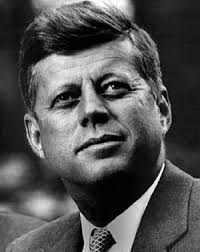 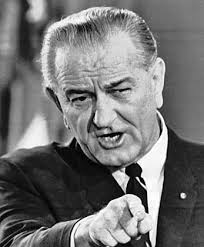 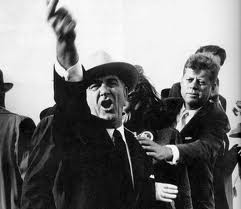 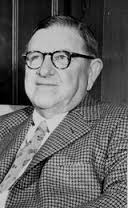 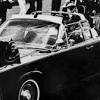 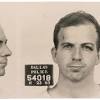 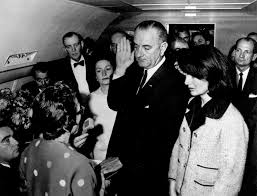
By RAR
Fifty years after the assassination of President John Fitzgerald Kennedy, 59
percent of all Americans believe that there was a cabal behind the murder, while
only 24 percent believe that Lee Harvey Oswald acted alone. Why does it matter?
After all, the average age in America in 1963 was 28 years, putting those
average-aged people of that time now near the end of the average American
lifespan (76 for men, 81 for women), meaning that the only people around in 2013
to have personal memories of the event are old people whose recollections of the
JFK assassination are predominantly memories of their childhoods. A child
remembers images interpreted through emotions, particularly those conveyed by
the adults around them. For me personally, as a kid in the 5th grade at Maddox
Elementary School in Englewood, Colorado, only just turned 11 years old, this
was the memory of being in the cafeteria when a voice came over the intercom. As
I recall, it was the voice of a woman, perhaps the school secretary, who was
crying and she announced that the President of the United States had been killed
and that we were all being dismissed from school for the day, which was a
Friday. This is all vague to me now and I can't remember any precise details of
what happened next. I recall there being a chaotic release of students and that
parents were showing up to pick up their kids, but I think I walked home alone.
I remember the Principal, who was a dark and dour looking character in the best
of times - very formal, always dressed in dark suit and tie - standing out front
of the school, helping with this unexpected transition and I recall that he
looked upset. I seem to recall the women who worked in the lunch room were
crying, and that the whole scene was fractured, weird, surreal.
My sense of who JFK was to that point had developed from watching the
televised debates of 1960, some of which my family (my Dad, Mom, and 2-year old
brother and myself) watched with my paternal grandparents. Walter and Bess were
at our Colorado home, for some reason, though they were Nebraska farmers,
children of the state's earliest homesteaders who had established their stake on
the Great Plains through homesteading opportunities (free land) promoted by the
federal government in the latter 1800s.
My Grandmother Bessie had been a pretty young girl who had a limp, and then
lifelong health problems that put her in a wheel chair for most of the last
quarter of her life, which was not long. She passed away later in the 1960s. The
daughter of German immigrants, she spoke German fluently and during World War II
Walter and Bessie had taken advantage of a program that brought prisoners from
the German Army, plucked from the battlefields of Europe, to the U.S. where they
were used as farm laborers to replace those U.S. boys who were overseas fighting
the Nazis. I recall that my dad's family loved these guys! My dad, who is still
living, bless his heart, has particularly fond memories of two who he recalls as
being high-spirited and highly entertaining, always up to some humorous prank.
Somewhere in my family there is a photograph of maybe twenty of these guys,
lined up in two rows for a portrait, with the front row seated, and the back row
standing with arms around shoulders, mugging for the camera, smiling. They were
probably happy as hell to be alive and out of harm's way. And there on a horse
behind them, middle frame, is my young father, who was born a golden boy. It is
an amazing photograph that I have seen but do not possess. There is something in
the dynamics of all that is happening in that photograph that speaks to truths
hidden deep in the heart of the American soul, at least as it has been portrayed
in my experience with being an American. Our political and ethical dimensions
are often at odds with our human emotions. Extraneous details aside, we like who
we like.
My mother was particularly taken with JFK and Jackie, while my father was on
the fence. His parents, and particularly my grandmother Bess, were Nixon
Republicans all the way, and they hated Kennedy. I recall my grandmother calling
him a liar and that there was a complete division in the way that my parents and
my grandparents saw the Kennedy-Nixon debates. A born contrarian, I tended to
dislike Kennedy only because most everyone I knew seemed to love him. In a
similar vein, I also hated the local team, the Denver Broncos, though my family
would often attend games, which I loved, sitting in the frigid, wind-swept chill
of the shaky South Stands, where the hooligans ruled. You got a lot of drunks in
that group, fights breaking out, and the stands were famous for being the
launching site of hefty snowballs, which fans would rain down upon
visiting teams when they huddled at that end of the field. As a kid, you just
see what the adults are doing and assume this is what people do, and also the
reason people tend to grow up to be like those who influenced them as children.
History becomes history only after
everyone who was around to experience its particular events are largely dead and
gone. Between the time an event of historic significance occurs and this point
at which it becomes "history", any storyline that details that event is almost
entirely an information management issue. People will have different points of
view and so interpretations of events are developed as countermeasures to other
perspectives. This is what public relations, advertising, and message control is
all about. There is always a race to establish the storyline that will stick,
because some version of what people believe may have happened will rise to take
the form of the accepted truth. (And once "history" is established, any other
version explaining its events and significant ramifications become heresies,
even assaults against the institutions that established the history narrative.)
In the case of the Kennedy Assassination, this was what the Warren Commission
Report, mounted by Lyndon Baines Johnson, elevated to the presidency by the
assassination, was designed to be: a quick and definitive conclusion that would
lock down "the truth" in the public mind.
In 2013, the "august" University of Western Australia performed a study of
the attitudes of "1,001 U.S. participants" to determine the response impact of
an individual's tendency to believe in "conspiracy theories" regarding
controversial issues such as climate change and the use of genetically modified
foods, among other. Perhaps not surprisingly, people who are inclined to
see conspiracies behind the things that happen also tend to be less trusting of
programs, like public vaccinations, for instance. The study showed that
conspiracy-oriented personalities tend also to put little belief in that which
is sold as scientific fact.
While that is not a very profound finding, it is equaled in a less empirical
way by the attitudes of the media that publish articles on such findings.
Popular Science (October 24, 2013 posting), for instance, opened its article
on the study with this bit of positioning:
"Welcome to Crazy Town,
where the moon landing was staged, 9/11 was a hoax, vaccines and
teeth-strengthening fluoride are poisons distributed by the government, Barack
Obama isn't really a citizen, and the Earth is absolutely not on an irreversible
path toward hot, pollution-driven destruction. Conspiracy theories, the
lifeblood of the real America."
In that description of crazy thinkers one finds the entire political
spectrum, which seems to imply that regardless of the issue if one questions
official narratives they are inherently nuts.
The conspiracy theorist in me immediately wants to ask, "Well who is
controlling the narrative?" This makes me a citizen of Crazy Town, according to
Popular Science writer Shaunacy Ferro. (Is that a made up name? Damn, I
did it again!")
My point is, there is considerable prejudiced in U.S. society against people
inclined to believe in conspiracy theories, even when they are basing their
beliefs on qualifiable data.
GO TO PART 2 - Qualifiable Data
|
